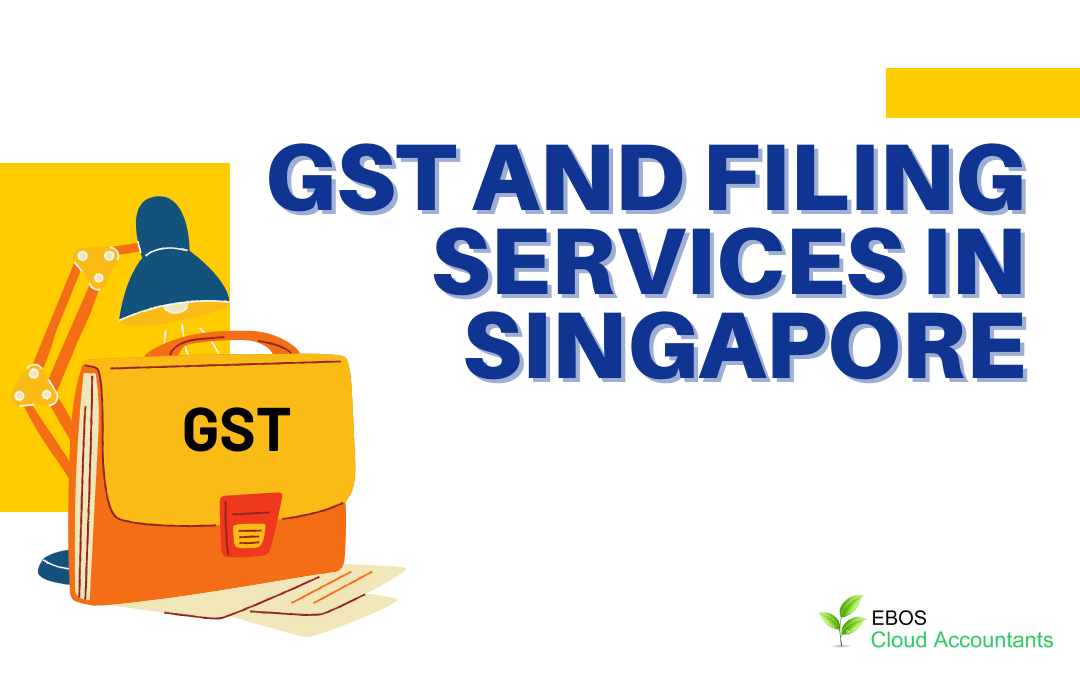GST AND FILING SERVICES IN SINGAPORE
What does GST Stand for in Singapore?
GST stands for Goods and Services Tax. GST is a tax collected by the Singapore government on most goods and services that buy and sold in Singapore, other than the exemptions.
Goods and services refer to domestic consumption of local and imported items. GST is expressed in percentage (currently 7%). GST is commonly applied to the selling price of goods and services. GST is charged to the end consumer; therefore, GST usually does not cost the company.
Before the commencement of your business, you first understand the aspects of GST. Then, ensure that you comply with Goods and Services Tax filing, applicability, procedure, and schemes.
Why is GST important to your business?
IRAS is firmly committed to deterring, detecting, and dealing with tax evasion and fraud, a criminal offense punishable under the law. GST is also one of them.
How does a business apply for GST registration?
They will review your application upon receipt of all needed documents. If the documents are not submitted, your application will be treated as a withdrawn appeal for a rejection of late payment penalties and late submission penalties.
What kind of goods is exempt from GST in Singapore?
Maximum, all goods and services, are taxable supplies, but some kinds of goods are exempt from GST. The supplies exempt from GST include the supply of digital payment tokens, the import and local supply of precious investment metals, the sale and lease of residential properties, and the provision of financial services.
Where do I file my GST return in Singapore?
When you are filing a GST return for the first time, first authorize users for GST filing. You can file your GST returns by logging in to myTax Portal. After filing your Goods and Services Tax, save the copy of your acknowledgment page and proceed with your payment.
GST Registration
Registration of GST | Filing of GST
- GST Registration is mandatory for everyone whose company turnovers for 12 months at the end of the calendar year, surpassing 1 Million SGD.
- Understanding GST registration in Singapore does have a significant impact on your company’s expenses and financial statements. However, each business charges GST only if the value is added to the good or service.
What Are the GST Registration requirements in Singapore?
GST registration requirements are as follow:
- Company’s registered name
- Company’s registration number
- Business activities of the company
- Financial Year End (FYE)
- Issued & Paid-Up capital
- Size of company
- Financial statements
How much does it cost to file GST in Singapore?
Type of GST Service Fee:
- GST Voluntary Registration: $500.00
- Applying for Exemption From GST Registration: $300.00
- GST F5 Reporting and Filing* fr $150.00/quarter
Applicability of GST in Singapore
Not every transaction of goods will deduct the Goods and Services Tax. However, according to the IRAS (Inland Revenue Authority of Singapore), GST is applicable for two common causes.
Supply of Goods and Services
Supply includes sales, exchange of goods, disposal, etc., must be made by GST-registered companies only. The taxes that are charged for supplying goods and services must be paid to the government with proper GST returns filing, and GST is not applicable for the personal transactions done by the supplier.
Import of Goods and Services
Goods and Services are imported from abroad for many reasons. However, every good imported into Singapore must charge GST. Singapore Customs proposes the charge on the import of goods and services. The GST amount payable is computed based on the value of cost, insurance, and freight value of the goods.
GST Registration Falls in Two Categories
a) Voluntary Registration
Voluntary Registration provides an option to a person to take GST Registration even though he is not liable for GST registration. Being a registered company, you can be able to get a credit for the input tax.
b) Compulsory Registration
Goods and Services tax is compulsory for many businesses. You need to pay the GST on taxable supplies. Mainly GST registration is compulsory whose annual taxable revenue exceeds 1 million SGD.
Exemption from Registration
You don’t need to do any registration for GST if you are approved as an exemption from Registration by the IRAS. For getting approval from IRAS, your business should mainly cope with zero-rated supplies. The followings are the example of exemption from GST:
- Sale of unfurnished residential properties
- Exported goods
- International services
- Financial services
Import and local supply of precious month.






